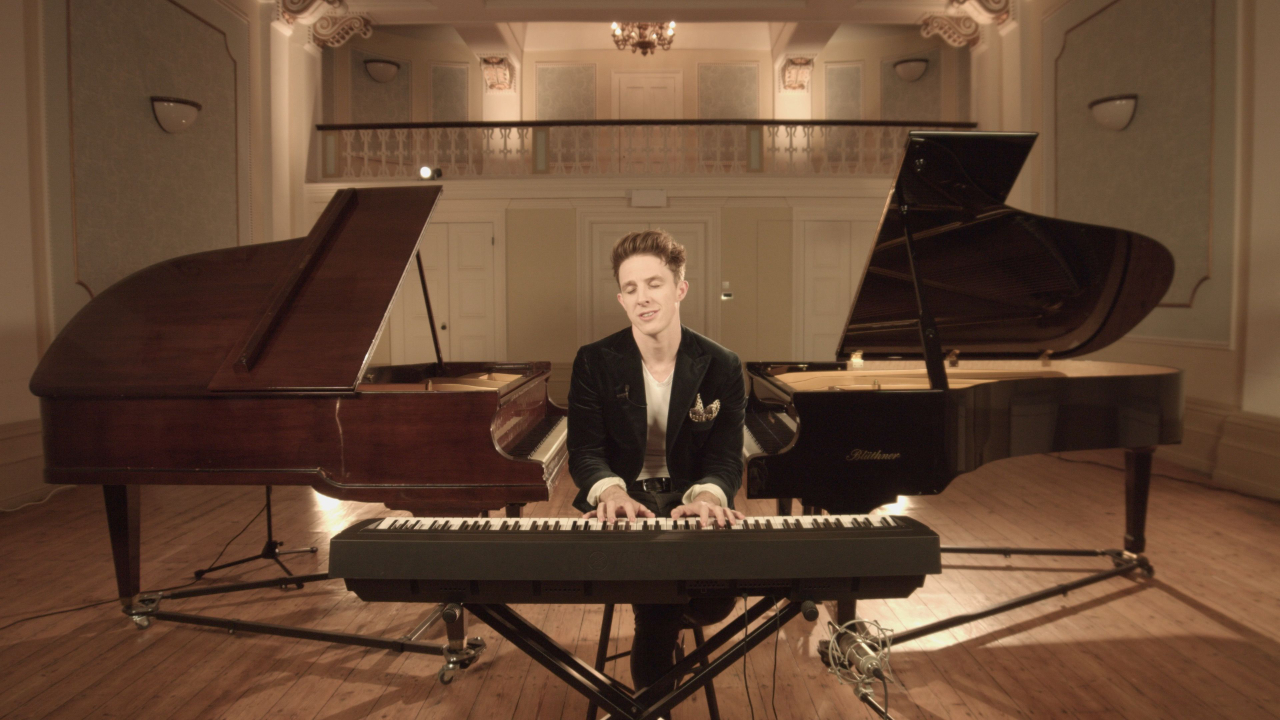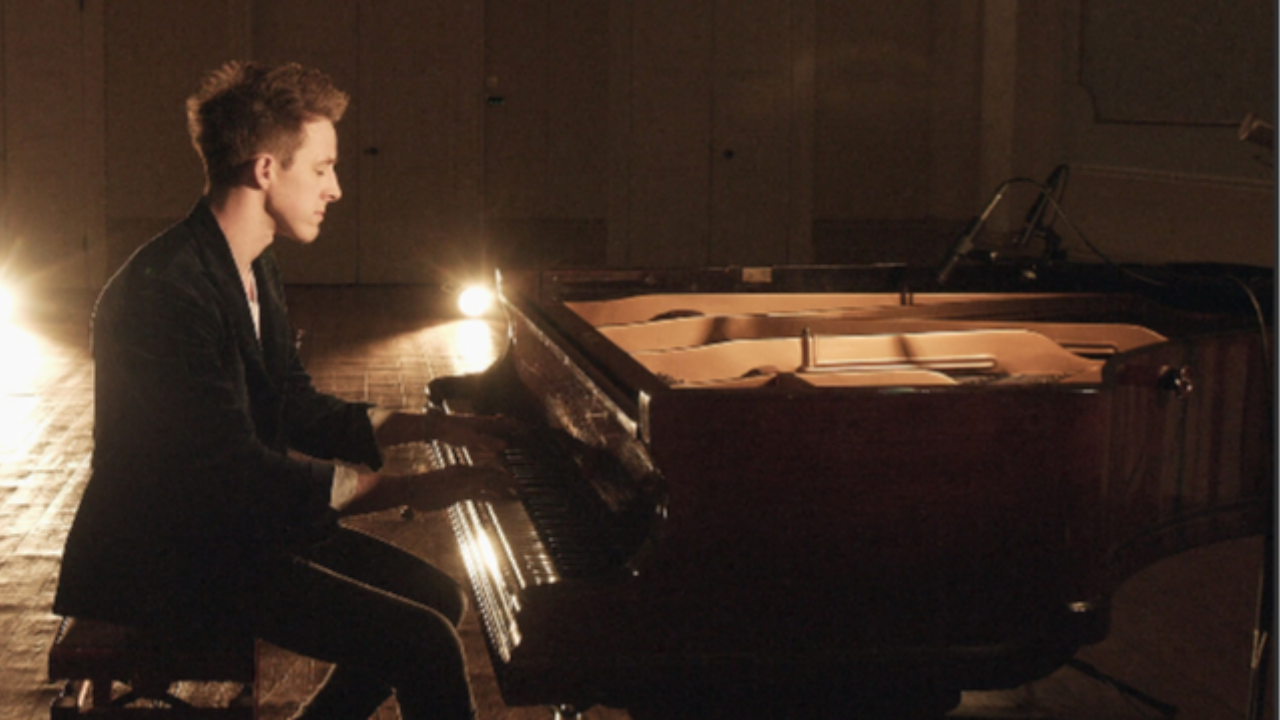"Music Finds Us Again."

Every once in a while, a student shares something that reminds me why music exists beyond practice, beyond progress, beyond performance.
Mervi recently reflected on an experience that went far deeper than learning how to cover a song. As she revisited "What a Wonderful World," she found herself reconnecting with a moment from her past — a memory of loss, vulnerability, and quiet grief, paired with the song playing in a hospital corridor.
Moments like that don’t live in the intellect.
They live in the body.
In the heart.
Music has a way of finding us again — sometimes years later — and meeting us exactly where we are. It doesn’t erase what we’ve lived through, but it can gently soften what we carry. It can remind us that beauty and pain can exist in the same breath… and that neither one cancels out the other.
What moved me deeply about Mervi’s reflection was the way she described rediscovering the softer, more conversational side of music — the part that listens before it speaks. Th...
"A Song That Found Me Again."

I just wanted to write: thank you.
Not for anything small — but for something that touched a very deep place in me.
I recently went through the challenge course “How to Write a Cover Song,” where Stephen explains how he covered What a Wonderful World. I originally joined because I wanted ideas for the current challenge of covering Would You Mind. But what I found was something I didn’t even know I needed.
When Stephen shared the story of his mother, her work, and the themes of babies being born and lost, it reached into a memory I had almost forgotten. Years ago, when I had a miscarriage, I remember being pushed through the hospital corridor on a bed — and What a Wonderful World was playing on the hospital radio. The contrast of that song with the pain of the moment stayed with me.
Hearing this song again, in this context, felt like comfort arriving after many, many years. It also felt like hope — especially in a world that feels so heavy right now, with wars, hatred, and so much m...
"When the Music Finally Starts to Speak."

here’s a moment every musician waits for — the moment when theory stops living in your head and finally starts living in your hands.
Jonathan recently shared a reflection that captured this perfectly. He spoke about practicing two-handed chords every day, experimenting with arpeggios, shaping his own song at the piano, and suddenly realizing that the “something missing” he’d been feeling… wasn’t missing anymore.
That moment matters.
Because so many students spend months — sometimes years — collecting information about music without ever feeling like they’re actually making music. They learn shapes, names, progressions, and concepts… but the connection between theory and expression hasn’t quite landed yet.
And then one day, it does.
Not because of a single perfect performance.
Not because everything suddenly sounds polished.
But because the hands begin to understand what the mind has been learning.
Jonathan described that transition beautifully — the penny dropping as arpeggios st...
"When the Penny Finally Dropped."

Lately, my days have been filled with lots of two-handed chord practice and a whole lot of noodling — shaping my song on the piano, every single day.
And something beautiful is happening.
The song is starting to take shape. I finally got the chords. Little bits of melody are beginning to appear through the arpeggios, and even the “Would You Mind” phrases are starting to emerge naturally — coming from high A, C, and then resolving into the chord. It’s messy, experimental, and still very much in process… but it’s working.
This phase feels really beneficial. It’s not polished yet, which is why I haven’t shared many videos. But I can feel things clicking internally, and that’s been far more important to me than showing something “perfect.”
“The penny has dropped.”
That’s the best way I can describe it.
For the first time, I’ve made that transition from theory into actual practice with arpeggios. That feeling of “something missing” that used to follow me at the piano? It’s not missing...
"Why Slow Progress Is Often the Real Breakthrough."

One of the most important moments in a student’s journey doesn’t look impressive from the outside.
It looks slow.
It looks repetitive.
It looks like practicing the same simple thing over and over again.
Lawrence recently shared where he’s at in his practice — weeks into smooth scales, patiently working toward 120 bpm, two octaves, two hands, both directions. He spoke honestly about how long it’s taking, how many scales are still ahead of him, and how his hands still don’t fully work independently yet.
And yet… he’s enjoying the process.
That’s not a small thing.
That’s a breakthrough.
In a world that celebrates speed, shortcuts, and quick wins, choosing to move slowly — intentionally — is a quiet form of mastery. When a student decides to honor the foundations instead of rushing to the “fun stuff,” they’re building something that will actually last.
Scales aren’t glamorous.
But they teach your hands to cooperate.
They teach your ears to hear relationships.
They teach your mind to...
"Slow Progress, Real Progress"

Right now, I’m on week three of practicing smooth scales at 120 bpm — two octaves, two hands, both directions. And honestly? It’s slow. Very slow.
I still have two major scales to go (G# and A#) and all 24 minor scales ahead of me. It’s going to take me at least a couple more weeks before I complete them all — smoothly, evenly, and at tempo. But I’m okay with that.
For the first time, I actually feel like I’m accomplishing something real.
Practicing slowly, perfectly, and consistently until I reach 120 bpm is working. It’s not flashy. It’s not fast. But it’s solid. And there’s something deeply satisfying about feeling my hands begin to understand what they’re supposed to do — even if they’re still not fully independent yet.
I’ll be honest: I can’t wait to get to chords.
But I’m choosing to wait.
I know that if I rush past the foundation, I’ll only slow myself down later. I even went back to drill where both thumbs start on the same note — and realized I had rushed that exercise b...
"When Music Becomes Freedom."

Every now and then, a student puts into words something I’ve felt about music my entire life.
Peg recently shared a reflection that stopped me in my tracks. She described music not as notes or rules, but as frequency that creates emotional impact — almost magically. And that’s exactly it. Music isn’t just something we learn. It’s something we feel. Something that moves through us.
What touched me most was her story of being drawn to music at a young age — how a single sound, a French horn fanfare from Camelot, could awaken something deep inside her. That kind of response is not intellectual. It’s emotional. It’s human. It’s the part of us that recognizes music before we ever try to explain it.
Over time, many of us learn to approach music through layers of structure, terminology, and “shoulds.” We’re told what’s correct, what’s allowed, what’s proper. And while structure has its place, it can sometimes bury the very thing that made us fall in love with music in the first place.
Peg...
"The Secret of Music: Finding My Voice Through Frequency."

“All we’re really doing is playing with frequency that creates an emotional impact, in an almost magical way.”
When I heard Stephen say that, I felt something click inside me.
He spoke my language — and that one sentence summed up everything I’ve felt about music for as long as I can remember.
I was drawn to music at a very young age. I still remember the first time I heard the French Horn play the fanfare in Camelot. Something in me stood up. Every cell in my body felt aligned, awake, and alive. Even then, I knew music was more than sound — it was frequency, emotion, and meaning.
What fascinated me even more was learning how the Greeks had already figured this out long ago. How music, frequency, and emotion were deeply understood… until power structures shifted. The Church. The Ages. Control. Singing restricted. Notes labeled as “tonic” or “dominant.” Rules layered on top of something that was once free.
Hearing this explained so clearly felt liberating.
For so long, I’ve felt lo...
"The Secret of Music: Finding My Voice Through Frequency."

“All we’re really doing is playing with frequency that creates an emotional impact, in an almost magical way.”
When I heard Stephen say that, I felt something click inside me.
He spoke my language — and that one sentence summed up everything I’ve felt about music for as long as I can remember.
I was drawn to music at a very young age. I still remember the first time I heard the French Horn play the fanfare in Camelot. Something in me stood up. Every cell in my body felt aligned, awake, and alive. Even then, I knew music was more than sound — it was frequency, emotion, and meaning.
What fascinated me even more was learning how the Greeks had already figured this out long ago. How music, frequency, and emotion were deeply understood… until power structures shifted. The Church. The Ages. Control. Singing restricted. Notes labeled as “tonic” or “dominant.” Rules layered on top of something that was once free.
Hearing this explained so clearly felt liberating.
For so long, I’ve felt lo...
"When Understanding Replaces Effort."

There’s a moment every musician hopes for —
the moment when things stop feeling scattered and suddenly connect.
Gerd experienced one of those moments recently, and it perfectly captures why understanding matters more than effort alone.
A few months ago, he tried to play “Fly Me to the Moon.” Like many students, he loved the song but struggled to memorize the chords. The rhythm felt challenging. Progress felt slow. It was one of those situations where you’re trying hard… but something still isn’t landing.
Then, after continuing his studies and going through Level 5 for a second time, something shifted.
It clicked.
Not vaguely.
Not partially.
But clearly.
Gerd described watching a video on the train, sitting down afterward with a lead sheet, writing out the chords, and within just a few hours, he was playing with confidence and momentum.
That’s not luck.
That’s understanding.
What really stood out to me was his reflection after a lesson with Rex. He spoke about finally seeing how...

